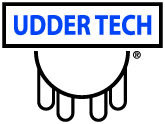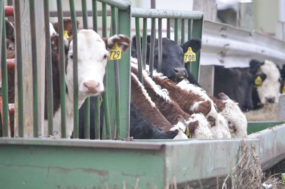The announcement came just over a week after Tyson Foods announced it would not accept cattle finished on the supplement, starting Sept. 6. Tyson Foods said it was concerned about an increase in non-ambulatory cattle arriving at its facilities. The company did not have empirical evidence showing beta agonist as the factor. But for animal welfare reasons, the company said it would restrict the use of product.
Merck had also announced a five-step program earlier in the week to create third-party audit review of the product, its uses among cattle feeders, and observations seen by packing facilities. With its Aug. 16 announcement suspending Zilmax sales, Merck said the decision was made to "monitor the process of feeding of Zilmax" as noted in the Aug. 13 announcement for its "Five Steps to Responsible Beef."
The Aug. 16 announcement was as follows:
"At Merck Animal Health, the health and well-being of animals is our first and foremost priority. We also take very seriously our commitment to providing safe, effective products that are developed based on comprehensive research, rigorous testing and sound science. We believe in the science that supports Zilmax and are confident in its safety and performance. Reinforcing this science and data-based approach, Merck Animal Health has announced it has strengthened its commitment to its Five-Step Approach to Ensuring Responsible Beef.
"As previously announced, Merck Animal Health, in conjunction with independent experts, will conduct a scientific audit, which will monitor the process of feeding of Zilmax, and will follow identified cattle from the feedyard to the packing plant to determine potential causes of lameness and other mobility issues during feeding, transportation, offloading and staging at the processing facility. We also will do a thorough review of potential compounding factors—such as nutrition, transportation and receiving facilities.
"In support of our customers and to ensure effective implementation of our five-step plan, Merck Animal Health has made the decision to temporarily suspend sales of Zilmax in the United States and Canada. This will allow sufficient time for the establishment of valid study protocols, identification of feeders and packers to participate in the audit, and creation of a third-party team to oversee this process and validate its results.
"We remain confident in the safety of the product, based on our own extensive research and that of regulators and academic institutions, and are committed to the well-being of the animals that receive it,” says KJ Varma, BVSc, Ph.D., Diplomate ACVCP, Senior Vice President Global R&D, Merck Animal Health. "This important step demonstrates our commitment to providing our industry partners with data that will reaffirm confidence in Zilmax. We sincerely regret that this situation creates business challenges for our customers but it is critical to ensure that this process is conducted appropriately and with rigorous scientific measures. After the five-step plan is completed, the results will be shared publicly."
In addition, we are also accelerating the development of our Merck Animal Health Advisory Board, which will bring together industry experts, producers, academics and company leadership to promote an open dialogue on animal well-being and help shape and strengthen the company’s animal health and well-being program in the future."
The Merck press release said Zilmax sales were $159 million in 2012 for both the U.S. and Canada.
David Anderson, a livestock economist with Texas A&M AgriLife Extension Service, said the annoucement could have varying effects on the beef industry this year, especially as they relate to cattle feeders.
"It hurts the bottom line for them," he said. "The end result is for feeders, it takes away a profitable tool from them. That normally means they can bid less for feeder cattle. The potential there could have a downward effect on feeder cattle prices.
"At the same time, this cuts beef production, and we might expect with less production, to have higher prices for beef. Perhaps higher fed cattle prices, which offsets and helps the feeders. Those two things could offset each other." ![]()







